Counting skills Easy Measurement Worksheets for 7-Year-Olds
5 filtered results
-
From - To
Boost your 7-year-old's counting and measurement skills with our specially designed Easy Measurement Worksheets! Kids Academy offers engaging, fun activities that help children grasp essential numeracy concepts. These worksheets guide children to practice counting, comparing measurements, and understanding units of measure through interactive tasks and colorful illustrations. Perfect for reinforcing classroom learning or homeschooling, our resources make math exciting and understandable. Help your child build a solid math foundation and confidently solve measurement challenges. Download and print these easy worksheets to support your child's learning journey today!
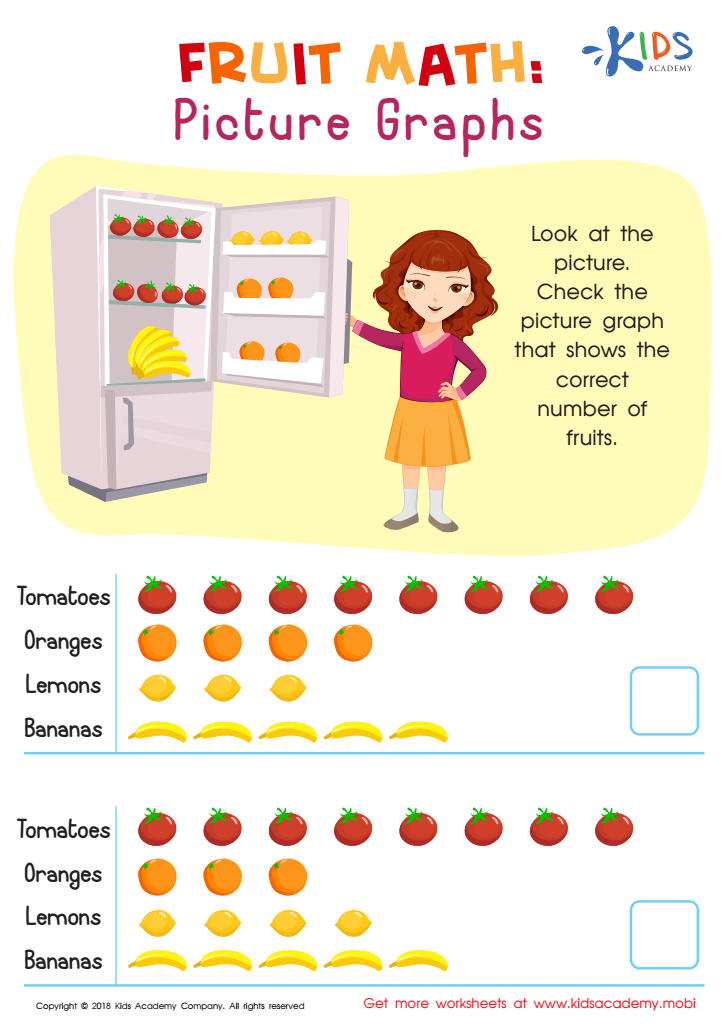

Fruit Math: Picture Graphs Worksheet
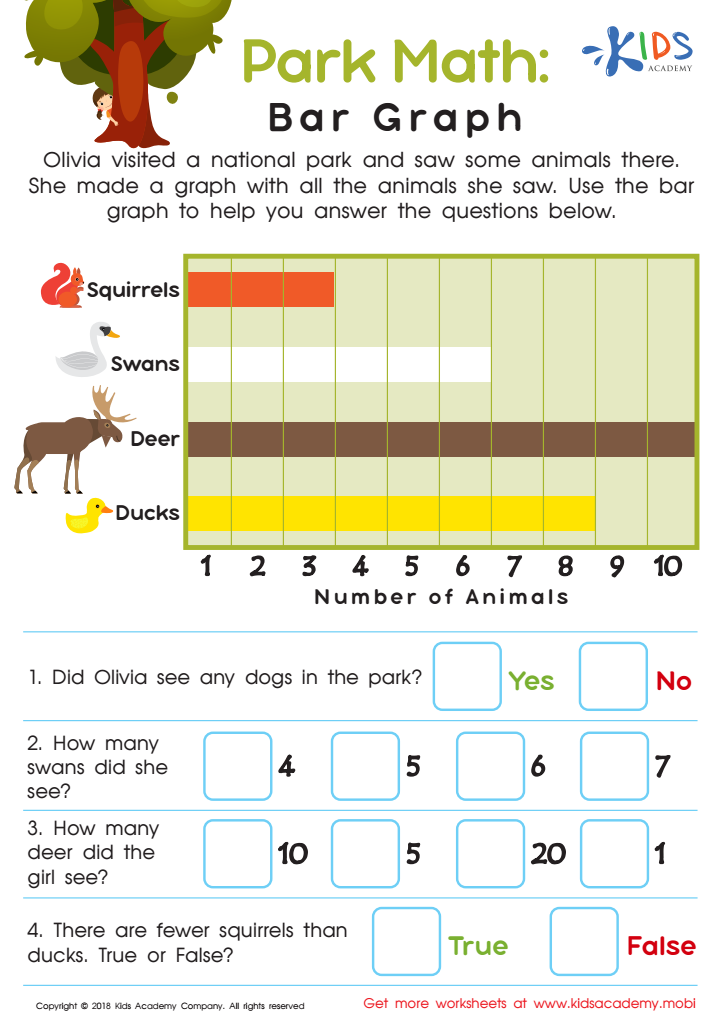

Park Math: Bar Graph Worksheet
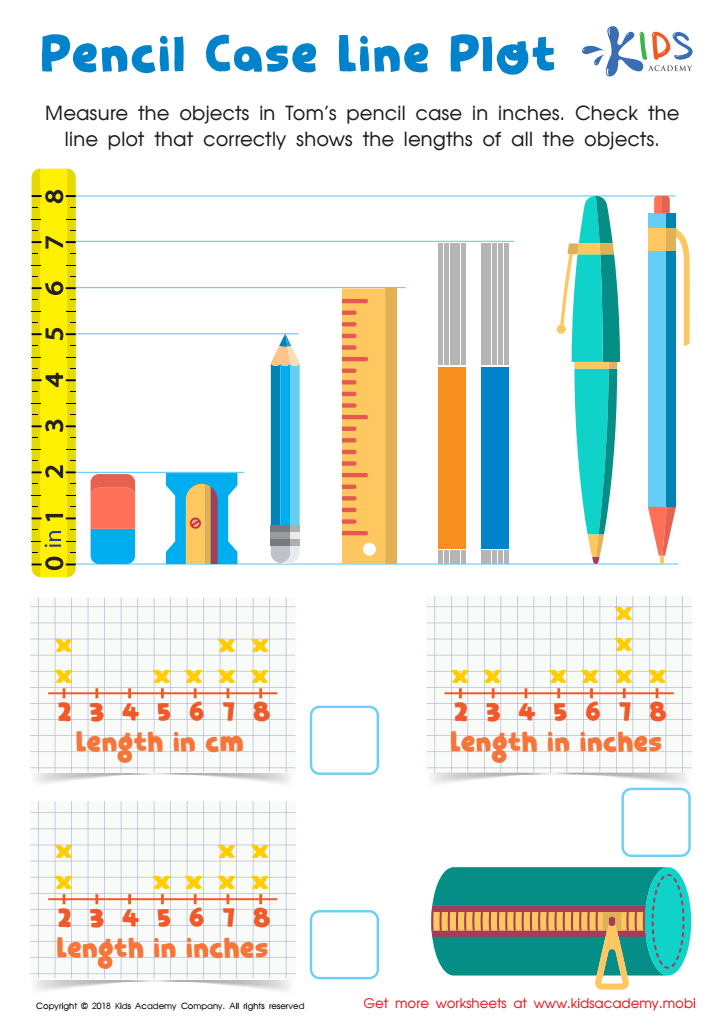

Pencil Case Line Plot Worksheet
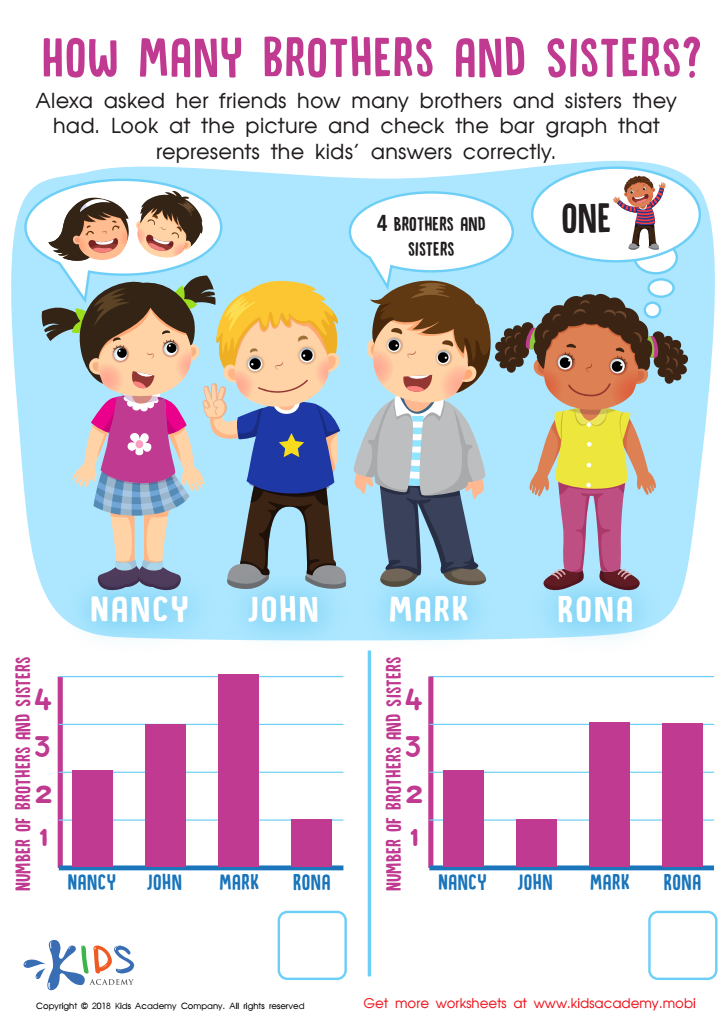

How Many Brothers and Sisters? Worksheet
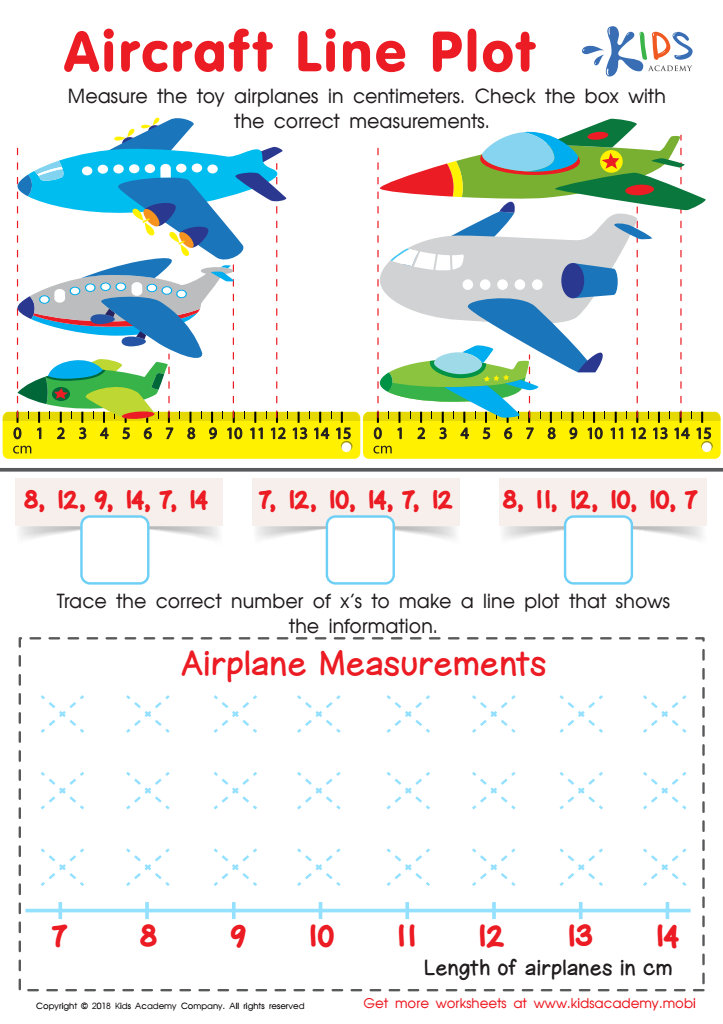

Aircraft Line Plot Worksheet
Counting skills and easy measurement activities are foundational to a child’s cognitive development and serve as crucial building blocks for more advanced mathematical concepts. For 7-year-olds, mastering these skills can significantly enhance their numerical literacy and problem-solving abilities, paving the way for academic success in mathematics and other subjects.
Counting is more than just reciting numbers; it helps children understand the concept of quantity, order, and the relationship between numbers. When children count objects, they start to see patterns and develop a sense of numerical magnitude, which is essential for addition, subtraction, and other arithmetic operations.
Meanwhile, easy measurement activities help children grasp physical dimensions such as length, weight, and volume. These activities encourage kids to compare, estimate, and relate different measurements, fostering practical life skills. By engaging in simple tasks like measuring ingredients for a recipe or comparing the lengths of different objects, children learn to apply mathematical concepts in everyday scenarios, reinforcing their learning.
Parents and teachers play a critical role in this developmental stage by providing a supportive and engaging environment. Through interactive activities such as games, puzzles, and hands-on projects, adults can make learning fun, which helps to nurture a child's enthusiasm for math. In essence, focusing on counting and measuring at an early age equips children with essential skills that will benefit them throughout their education and daily lives.

 Assign to My Students
Assign to My Students
















